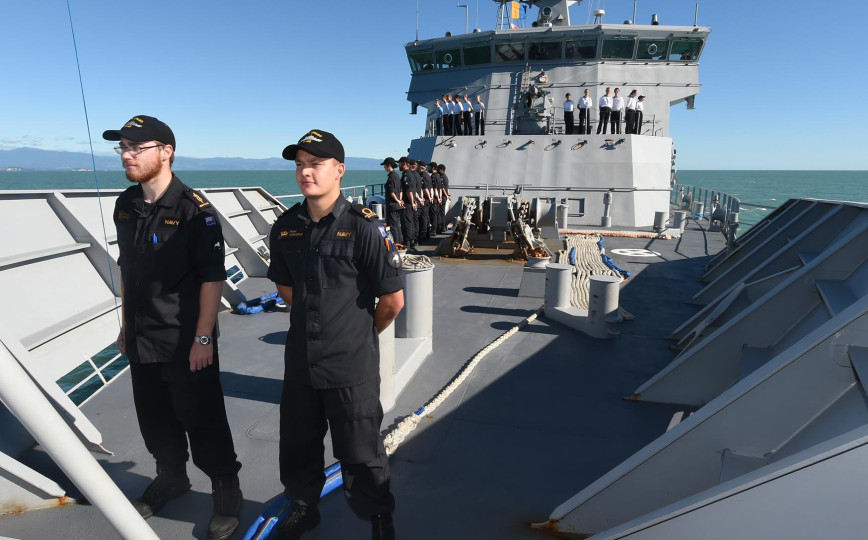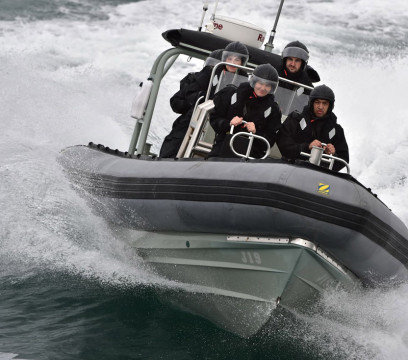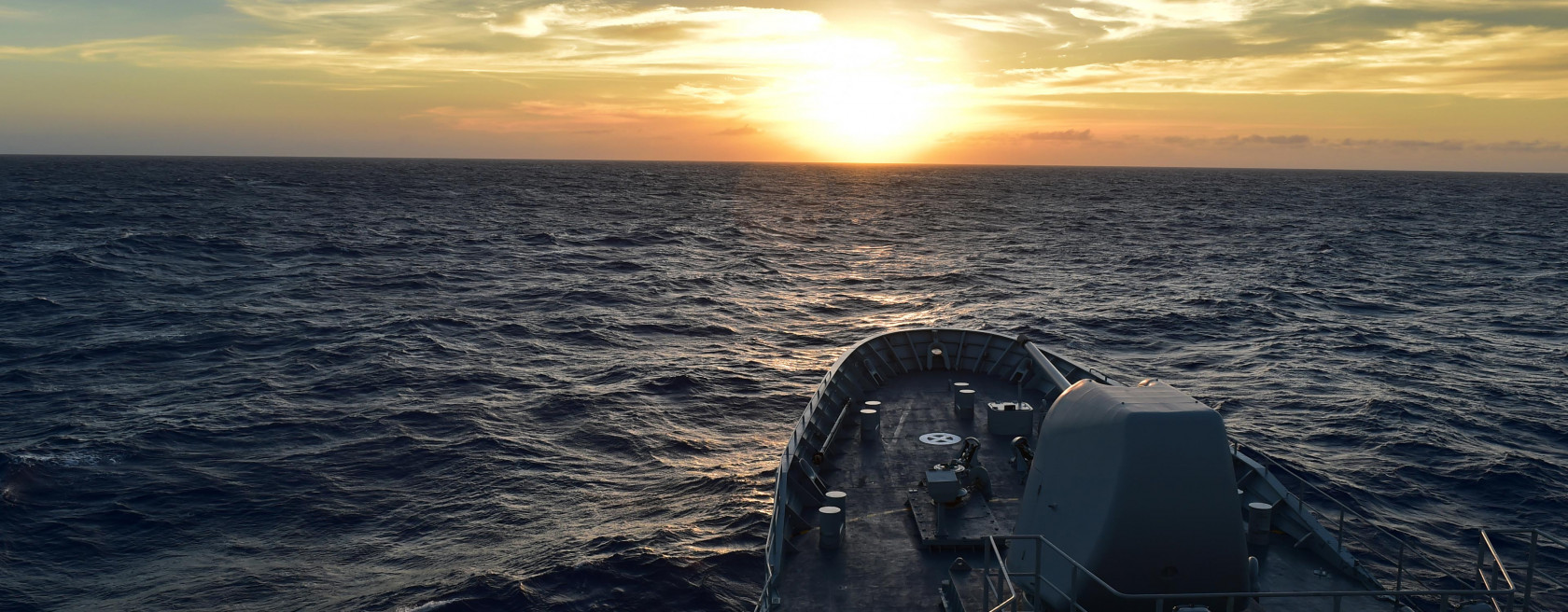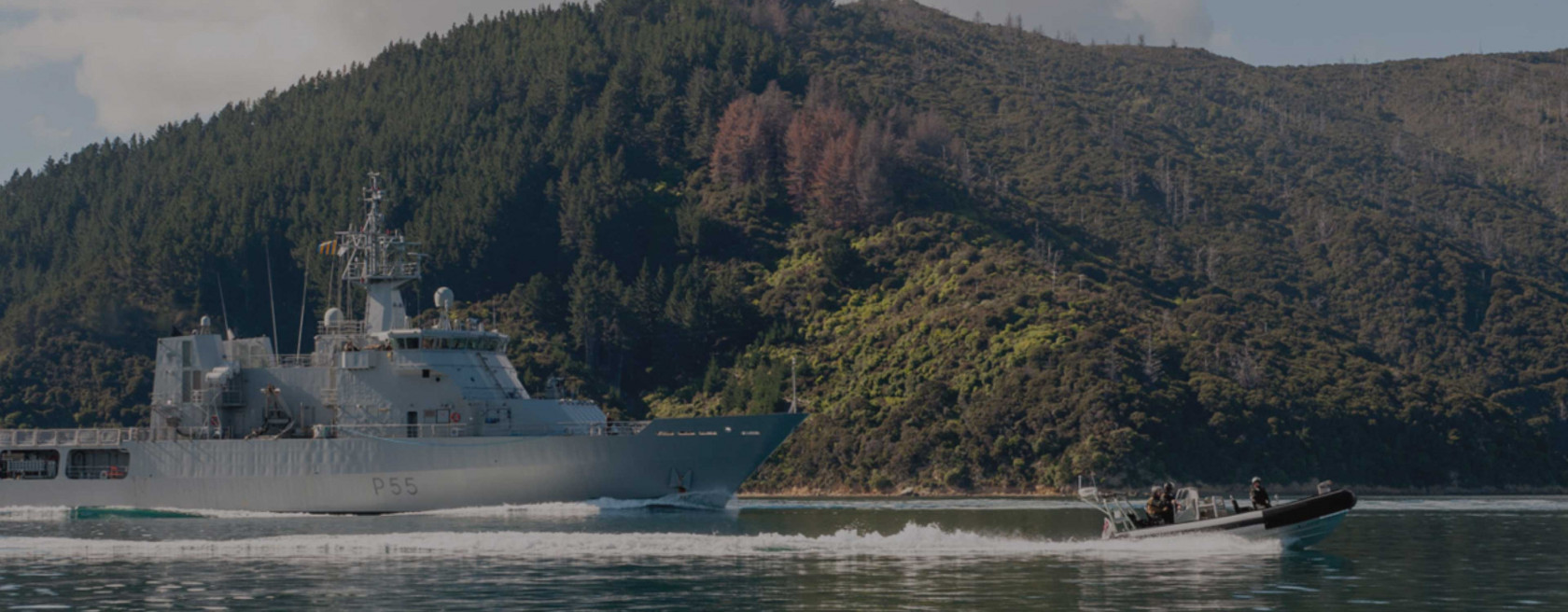
Reserve Public Affairs Officer
Skip to section:
About the role Career progression and training Salary Entry requirementsReserve Public Affairs Officers tell our story to internal and external audiences. You might be telling that story from a base or camp in New Zealand, from a ship at sea, or while deployed overseas in the midst of an exercise or operation.
- ServiceNavy
- SpecialisationNaval Reserve
- LocationAuckland, Tauranga, Wellington, Christchurch, Dunedin
-
Initial daily rate$224
About the role
The NZDF conducts public affairs to enhance relationships, strengthen trust, inspire confidence and achieve communication and engagement outcomes, in order to enable NZDF strategic and operational effectiveness. NZDF informs and educates identified audiences about NZDF and its activities in ways that are consistent with NZDF values, adhere to our legal requirements, and meet the moral and ethical expectations of New Zealanders.
Defence Public Affairs (DPA) creates, engages, educates and advises to strengthen trust, inspire confidence and achieve NZDF communication and engagement outcomes. A central purpose of DPA is to maintain and enhance the reputation of the NZDF. Along with this, DPA supports New Zealand Government and NZDF policy, strategy and objectives and acts as trusted advisers for the leaders and people of the NZDF. Through the provision of creative services (including content development, editing, imagery, and design), digital expertise, marketing, media relations and business partnership, DPA provides for the integration of NZDF public affairs activity.
As a Public Affairs Officer, you will provide strategic and tactical advice to military commanders on communications and media issues, prepare and implement communications and media plans, communicate the NZDF’s direction through media, Internet and intranet channels, and seek out and prepare content for publication. You may also be required to provide media training to NZDF personnel.
There are opportunities for Public Affairs Officers to deploy with RNZN ships, on exercises, and on operations. You may deploy individually or as part of a team. As you progress within your career, you will receive both formal leadership training and on the job training. You will also gain the experience needed to lead a team and to coordinate communications and media requirements.


Career progression and training
Training Overview
Time Commitment
Basic Training - JOCT
Job Training - PAO
Career Progression
During your first 11 months in the Navy, you will be taught core military, mariner and leadership skills in order to be an effective officer in the Navy.
Basic Training - Junior Officer Common Training: This initial training is known as Junior Officer Common Training (JOCT) and begins with nine days at Devonport Naval Base and the Tamaki Leadership Centre in Whangaparaoa.
Job Training: Training as a Reserve Public Affairs Officer is developed case by case in consultation with the Public Affairs Manager (Navy).
On-going Career Progression: Your hard work, experience and training accomplishments as a Public Affairs Officer are rewarded by promotions in rank and salary.
Course dates will be advised by your Candidate Engagement Facilitator as part of your recruitment journey.
Reservists who have not previously served in the Regular Force (ab initio Reservists) commit to a minimum cumulative total of 20 days’ service each year for professional development and operational delivery. This is made up of a minimum of 14 days of full-time training, exercises, operational activity and/or supplementation to the Regular Force plus weeknight and weekend training. An additional 20 days is available for supplementary activities that benefit both individual Reservists and the NZDF.
Weekend training may also include Friday evenings. Longer exercises are conducted over periods ranging from four to 14 days. Naval Reservists receive a daily rate of pay, commensurate with their rank and experience, and this encompasses travel time required to attend training.
During your first 11 months in the Navy, you will be taught core military, mariner and leadership skills in order to be an effective officer in the Navy. This initial training is known as Junior Officer Common Training (JOCT) and begins with nine days at Devonport Naval Base and the Tamaki Leadership Centre in Whangaparaoa.
JOCT continues once you return to your home unit, with weekend training once a month, one evening of training each week, and self-study. You will also complete another week of full-time training in August and again in November, focusing on leadership skills.
Reserve officers receive the same initial training as their Regular Force counterparts. This includes parade training (drill), an introduction to the laws of armed conflict, first aid, naval customs and ceremonies, communications, an introduction to damage control, and small arms.
Upon the successful completion of JOCT, you will typically be promoted from Midshipman to Sub-Lieutenant and begin your familiarisation with Defence Public Affairs.
Training as a Reserve Public Affairs Officer is developed case by case in consultation with the Public Affairs Manager (Navy) and Director of Defence Public Affairs.
The job training pipeline will be further refined and advised in due course.
It is a requirement for all promotions that you be medically and physically fit. You will be eligible for promotion to Lieutenant once you have obtained three years of seniority as a Sub-Lieutenant, have your Commanding Officer’s recommendation, and have completed three courses alongside your Regular Force counterparts: the Lead Leaders course (five days), the Divisional Management Course (two weeks), and the Incident Managers Damage Control course (five days).
Promotion to Lieutenant Commander and above is based on merit. Promotion to Lieutenant Commander requires the completion of the Intermediate Command and Staff Course (Joint) or an equivalent international course. Promotion to Lieutenant Commander and Commander is also subject to minimum lengths of service and seniority in rank.

Salary
As a Reservist you are paid on an hourly rate rather than a salary. Pay rates depend on the role you are in and your rank; your pay will increase as you move up through the ranks.
As a Reserve Public Affairs Officer, the minimum remuneration you will be paid from day one is a daily rate of $223.72 plus an allowance for holiday pay. You are paid for each hour you work, up to a maximum of eight hours’ pay per day. Your remuneration will continue to increase on promotion and with the gaining of seniority.
$224
Initial daily rate
Entry requirements
Basics
Education
Fitness and Medical
Citizenship
- Be a minimum of 17 years of age upon entry.
- Be free of any criminal conviction for the previous two years.
EDUCATION
You must have either:
- NCEA Level 3 with University Entrance, or a recognised qualification of an equivalent standard, and five years of practical organisational communications specialist or media experience; or
- a relevant, organisational communication or media related degree and two years of practical industry experience.
- You must be medically fit for service.
- You must meet the minimum entry fitness standards.
- Colour perception restrictions may apply.
There are strict citizenship and security requirements to gain the SV security clearance required for this trade. You must be free of any criminal convictions for the previous two years.
